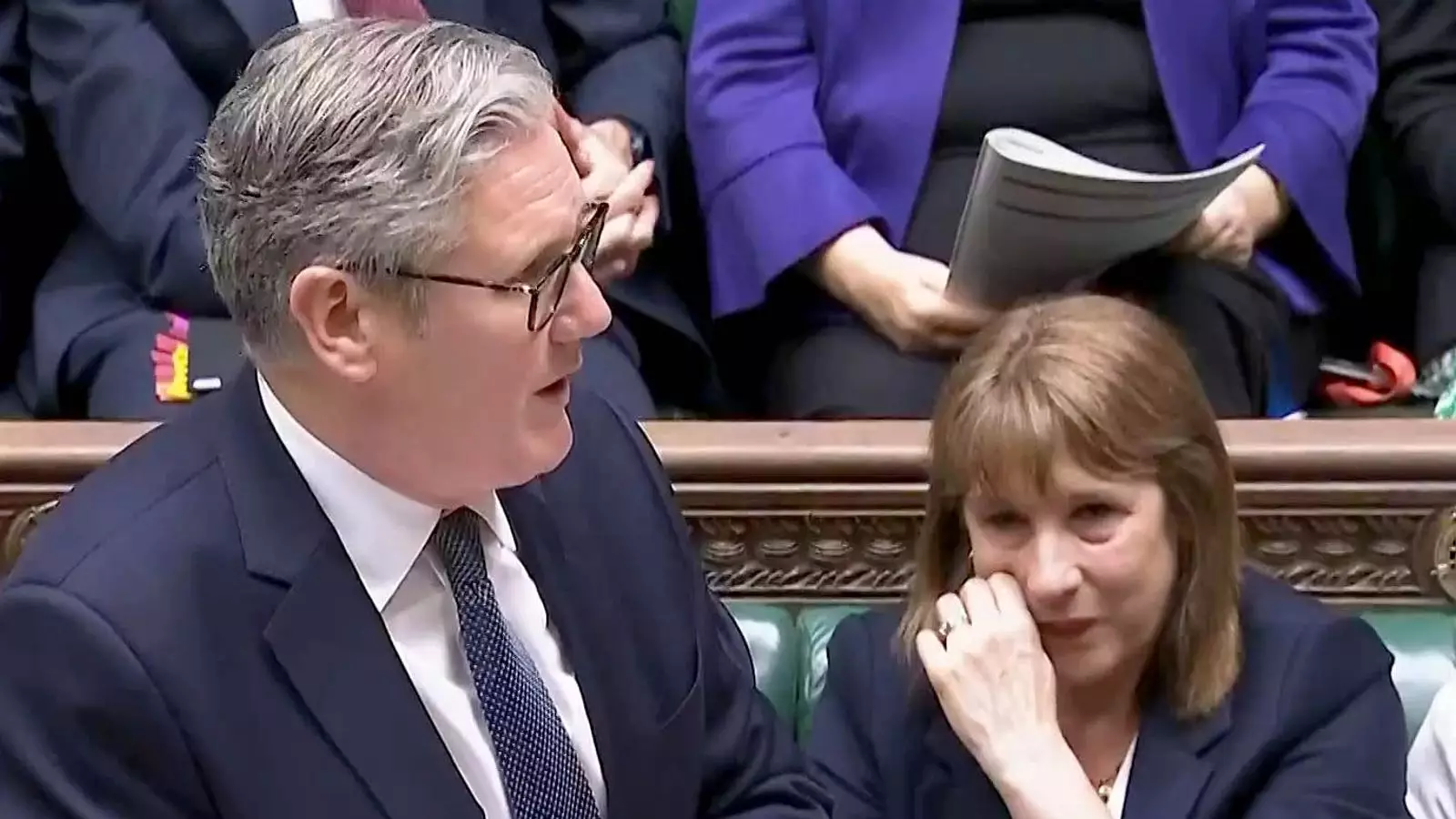In recent political discourse, there is a growing sense that the current government is teetering on the edge of crisis, a conclusion not reached lightly but through an accumulation of signals that point to an impending upheaval. Senior Labour figures speculate that Prime Minister Rishi Sunak may face a swift downfall within months if his administration’s performance continues to falter. Such predictions are more than mere conjecture; they embody the deep-rooted anxiety about governance legitimacy in an era where public trust is fragile, and political stability is increasingly an illusion. The uncertainty is compounded by the fact that policy failures, economic turbulence, and waning confidence create a vicious cycle that undermines leadership from within.
This environment of instability is often dismissed by those in power as temporary or exaggerated, yet the signs are hard to ignore. The narrative from opposition figures and some insiders suggests that not only the government’s reputation but also the internal cohesion of ruling parties could be severely impacted, leading to a potential leadership change that would shake the foundation of British politics. The reality is that in a system heavily shaped by public opinion and electoral performance, governments are perpetually vulnerable—any sign of weakness can precipitate a chain reaction of resignations, shake-ups, and the emergence of new political narratives.
The High Stakes of Electoral Performance and Political Survival
Upcoming elections across Wales, Scotland, and London are viewed as critical battlegrounds that will test the opposition’s strength and, consequently, the stability of the current administration. The bleak poll predictions, especially for Labour’s prospects in key areas like Wales and London, serve as a stark warning to the ruling Tory government that their hold on power is not guaranteed. Reform UK’s surge in some regions signifies a shifting landscape that could further weaken the existing political monopoly, exposing the volatility of voter sentiment.
Within this tumultuous context, Labour’s upcoming performance is seen as a litmus test—not only for their ability to secure electoral victory but also for the stability of the broader political system. A poor showing could accelerate calls for leadership change, as governing parties tend to dismiss weak electoral results as a sign that their mandate has eroded. Conversely, a strong performance might temporarily stabilise the government, but it does little to address the underlying systemic issues that threaten to destabilise the entire political order.
The internal dynamics within the Labour Party itself reveal palpable tensions. The recent passage of a contentious welfare bill, despite significant rebellion and policy U-turns, exposes the party’s struggles with coherence and ideological direction. An internal crisis could, in time, mirror the potential upheavals on the government side, as political elites grapple with the realities of an electorate that is increasingly disillusioned and volatile.
The Personal and Political Intertwining: A Reflection of Deeper Crises
The emotional display by Chancellor Rachel Reeves during Prime Minister’s Questions underscores the personal toll that these political tensions inflict on leaders. While Prime Minister Sunak publicly dismisses her visible distress as unrelated to politics, it unveils the heavy burden borne by those tasked with managing complex, often conflicting, demands. Such personal disclosures—whether genuine or perceived—highlight the fragile human aspect of political leadership, which is often masked by stoic public facades.
The widespread market reactions to her apparent emotional distress—sharp declines in the pound and long-term bonds—are symbolic of the precarious state of economic confidence. Markets are discerning barometers of stability; they sense when leaders are under duress and respond accordingly. This relationship illustrates how leadership crises are not confined to the political arena but spill into economic stability, influencing investor confidence and national financial health.
Despite the prime minister’s emphatic assertions that Reeves will remain in her role, the underlying vulnerability persists. Leadership unity, especially within a government facing multiple crises—economic, political, and social—remains a fragile veneer. Accidents of human emotion or policy missteps threaten to expose yawning gaps in cohesion, potentially leading to a domino effect of leadership changes and policy upheavals.
Ultimately, the current political landscape is characterized by a dangerous illusion of stability. Beneath the surface, uncertainty and unrest threaten to topple long-standing structures, revealing how fragile the edifice of political power truly is in an era defined by rapid change and deep discontent.



Leave a Reply